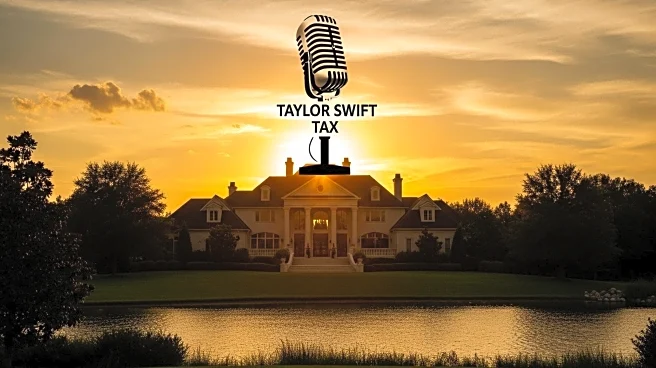What's Happening?
Several states, including Rhode Island and Montana, have introduced property taxes targeting luxury second homes, often referred to as the 'Taylor Swift Tax.' This tax aims to increase revenue by imposing higher taxes on non-primary residences valued over $1 million. Rhode Island's version charges $2.50 for every $500 of assessed value above this threshold. The tax is named after pop star Taylor Swift, whose Rhode Island mansion is subject to the new tax. Real estate brokers have expressed concern, arguing that these taxes could negatively impact local economies and deter wealthy buyers. Montana has also adopted a similar measure, increasing taxes on second homes and short-term rentals while providing relief to full-time residents.
Why It's Important?
The introduction of these taxes reflects a broader trend of states seeking new revenue sources amid public dissatisfaction with housing costs. By targeting luxury properties, states aim to address budget shortfalls and fund public services. However, real estate professionals warn that such measures could discourage investment in local markets, potentially slowing economic growth. The backlash from brokers highlights the tension between generating revenue and maintaining a healthy real estate market. The impact on local economies could be significant, as wealthy buyers may choose to invest elsewhere, reducing spending in these areas.
What's Next?
As more states consider similar taxes, the real estate market may experience shifts in buyer behavior. Potential buyers might delay purchases or seek properties in states with lower tax burdens. Additionally, states implementing these taxes will need to monitor their effectiveness in generating revenue and addressing housing issues. The real estate industry may lobby for changes or exemptions to mitigate negative impacts. Observers will watch closely to see if these taxes achieve their intended goals or if they lead to unintended consequences in the housing market.
Beyond the Headlines
The ethical implications of taxing luxury homes raise questions about fairness and the role of wealth in society. While these taxes aim to redistribute wealth and address housing shortages, they also highlight disparities in property ownership and access. The cultural impact of associating taxes with celebrities like Taylor Swift underscores the influence of public figures in shaping policy narratives. Long-term, these taxes could shift perceptions of luxury home ownership and influence broader discussions on economic inequality.










